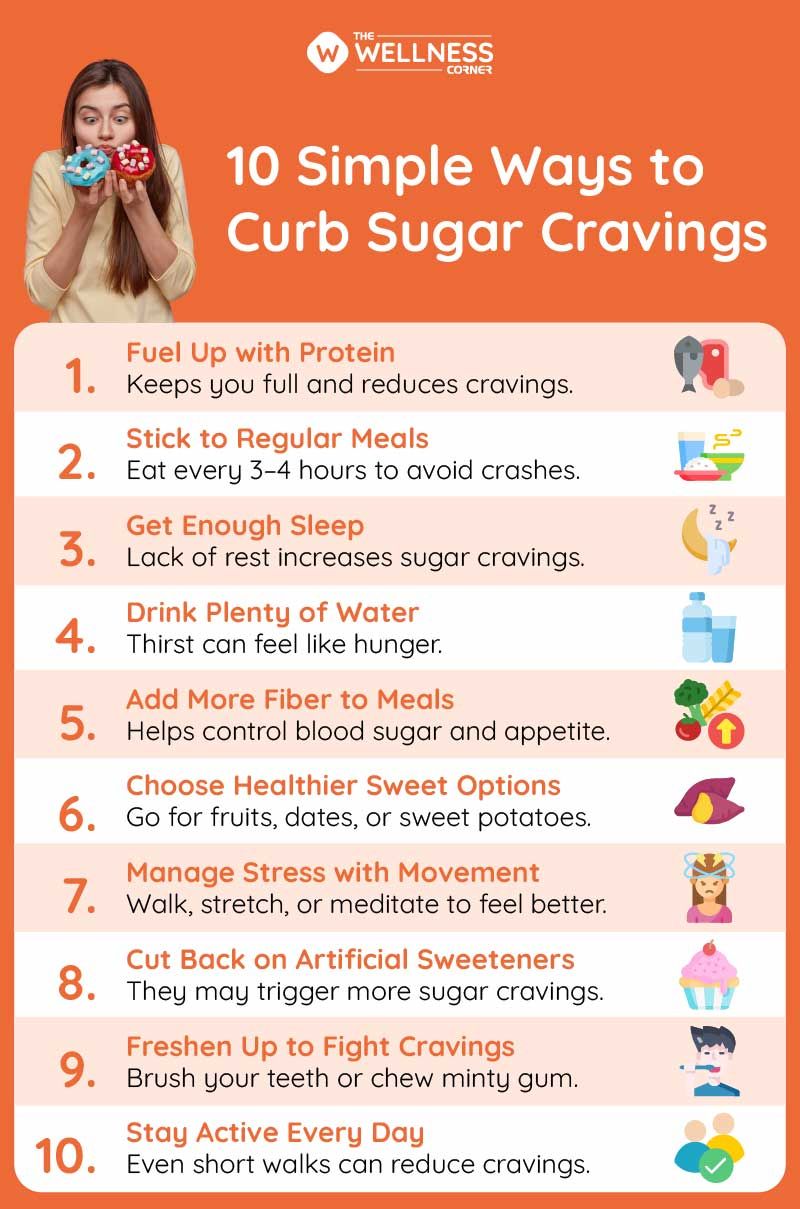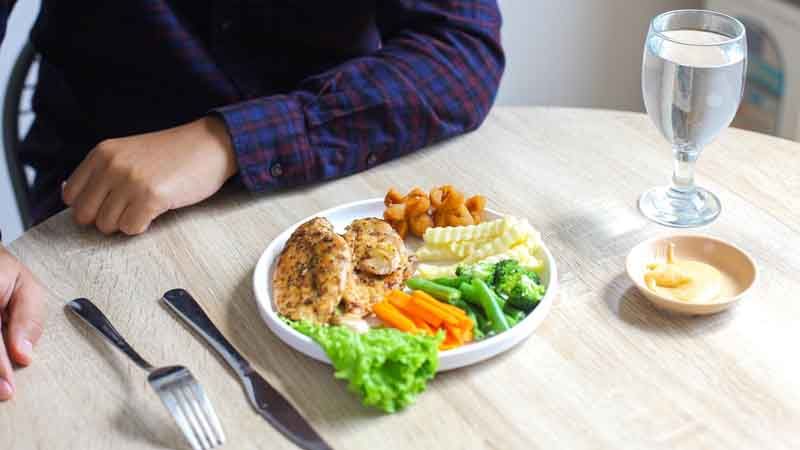Why Are You Always Craving Sugar — And How Can You Stop It?
- 3 months ago
Break Free from the Sweet Cycle—One Step at a Time
Picture this: you just had lunch, you're full, and yet, your brain starts whispering, “Go on, just a little chocolate won’t hurt.” Before you know it, you've finished the whole bar. If this sounds familiar, you’re not alone. Sugar cravings are real, powerful, and surprisingly common.
The good news? You do not have to rely entirely on willpower. Let’s dig into what causes sugar cravings and how you can manage them with strategies rooted in science.
Why We Crave Sugar? (And It’s Not Just About Liking Sweets)
Many of us believe that sugar cravings are simply a matter of poor discipline. But science says otherwise.
Cravings are complex and can be triggered by:
- Blood sugar fluctuations: When your glucose dips, your brain panics and demands quick energy—cue the sugar craving.
- Hormonal imbalances: Low serotonin and dopamine levels can make us crave sweets as a “mood lift.”
- Stress: Cortisol, the stress hormone, increases your desire for high-fat and sugary foods.
- Lack of sleep: When you’re sleep-deprived, hunger hormones like ghrelin go up, while satiety hormones like leptin drop.
- Habits and emotional eating: If you’ve grown up associating dessert with reward, comfort, or celebration, your brain treats it like an emotional fix.

10 Simple Ways to Curb Sugar Cravings
Understanding why you're craving sugar is the first step to breaking the cycle. Now, let’s look at the how—practical, science-backed ways to manage these cravings.
1. Fuel Your Day with Protein
Ever notice how you’re less likely to crave sugar after a protein-rich breakfast? That’s not a coincidence. High-protein meals reduce the hunger hormone ghrelin and help stabilize blood sugar levels.
What to do?
- Include 20–30g of protein per meal. Like eggs, Greek yogurt, tofu, paneer, lentils, or lean meats.
- Start your day with a balanced breakfast—skip sugary cereals and go for something like a veggie omelet or a protein smoothie.
Pro tip: If you're vegetarian, pair dal (lentils) with quinoa or brown rice to make a complete protein.
Also Try: 5 Protein Desserts You Can Enjoy Guilt-Free
2. Don’t Skip Meals
Skipping meals or following very restrictive diets can lead to a blood sugar crash—and that’s when your brain screams for quick energy from sugar.
Solution:
- Eat regular meals every 3–4 hours to avoid hunger spikes.
- Make sure each meal includes fiber, protein, and healthy fats to keep you full longer.
Even a small, balanced snack like a fruit with peanut butter or a handful of nuts can prevent you from reaching for a sugary fix.
3. Prioritize Sleep
One of the most overlooked causes of sugar cravings is poor sleep. Studies have found that people who sleep less than 6 hours a night are more likely to consume sugary foods the next day.
Here’s why?
• Inadequate sleep raises ghrelin (the hunger hormone) and reduces leptin.
• The brain's reward center becomes more susceptible to harmful eating cues.
Action plan:
- Aim for 7–9 hours of sleep each night.
- Create a relaxing nighttime routine by avoiding electronics, coffee, and big meals.
4. Drink More Water
You may not be hungry, but rather thirsty. Dehydration can lead to feelings of hunger and sugar cravings.
Fix it:
- If you have a craving, sip water and wait 10-15 minutes.
- Keep a reusable bottle with you to sip throughout the day.
Adding a splash of lemon or a few mint leaves can make water more refreshing without added sugar.
5. Add More Fiber to Your Diet
Fiber-rich foods slow digestion and help regulate blood sugar levels, reducing your likelihood of sudden sugar cravings.
Great sources of fiber:
- Vegetables like spinach, carrots, and broccoli
- Fruits like apples, pears, and berries
- Whole grains like oats, brown rice, and barley
- Seeds like flaxseeds and chia seeds
Bonus: High-fiber diets also support gut health, which plays a role in controlling cravings via the gut-brain connection.
6. Choose Naturally Sweet Alternatives
You don’t have to say goodbye to sweetness—just swap refined sugar with natural sources that also offer nutrients.
Try these instead:
- Fruits (fresh or dried in moderation)
- Dates with nut butter
- A banana blended with cocoa for a creamy dessert
- Baked sweet potato with cinnamon
These solutions will satisfy your sweet taste while also nourishing your health.
7. Manage Stress with Movement or Mindfulness
Stress-eating is real. When you're stressed or overwhelmed, your body seeks sweets for immediate relief.
Science-backed solutions:
- Practice deep breathing or 5-minute meditation when stressed.
- Go for a brisk walk, do yoga, or stretch—physical activity helps release dopamine and endorphins, which curb emotional cravings.
- Journaling or talking to a friend can also shift your focus away from food.
Also Read: Reasons Why You Crave Sugar When Feeling Low Or Stressed
8. Watch Out for Artificial Sweeteners
While zero-calorie sweeteners might sound like a great alternative, they can increase cravings for real sugar.
Why? They trigger the sweet taste receptors without giving your body real energy, confusing your brain, and increasing your desire for sugar later.
Use sparingly, and attempt to wean yourself off extremely sweet flavors entirely—your taste buds will adapt.
Also Read: Artificial Sweetener Xylitol Linked To Increased Risk Of Heart Attack And Stroke
9. Try the “Brush Trick” or Chew Gum
This one’s simple and surprisingly effective.
- When cravings hit, brush your teeth with minty freshness to reduce the urge for sweets.
- Chew sugar-free gum, especially one with a strong flavor like peppermint. It distracts your mouth and mind.
10. Move Your Body
Physical activity not only helps burn off excess sugar already in your bloodstream—it also acts as a powerful distraction and mood-lifter.
Studies show that even a 15-minute walk can reduce chocolate cravings in people who are used to snacking on sweets during stress.
Bonus: Regular exercise improves insulin sensitivity and reduces overall hunger signals over time.
Slowly Rewire Your Taste Buds
If you've been eating a lot of sugar, your taste buds are undoubtedly used to the extreme sweetness. Your palette changes when you lessen the amount of sugar in your diet.
In just a few weeks of eating less sugar, you may find that:
- Fruits taste sweeter
- Desserts you once loved now taste too sweet
- Your body craves sugar less often
Must Read: How To Reduce Sugar Intake Without Sacrificing Taste?
Final Thought: Progress, Not Perfection
Beating sugar cravings isn’t about cutting out sweets forever. It’s about understanding your body, managing emotional triggers, and building habits that give you better control.
Instead of saying, “I’ll never eat sugar again,” say:
👉 “I’ll fuel my body with the right foods.”
👉 “I’ll get better at listening to real hunger cues.”
👉 “I’ll enjoy sweets occasionally and mindfully.”
Cravings might still show up—but with the right strategies, they don’t have to control you.









